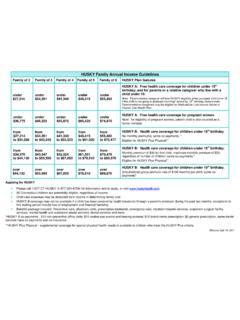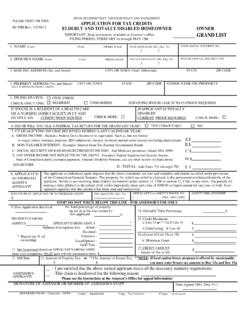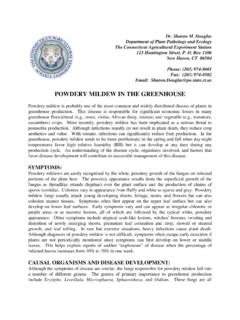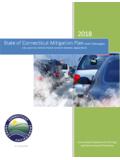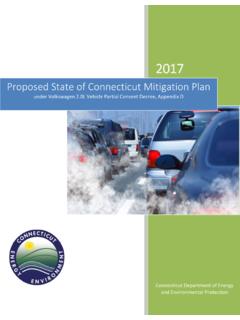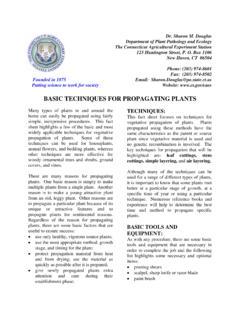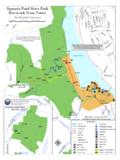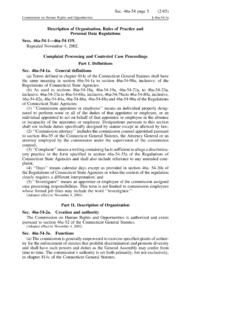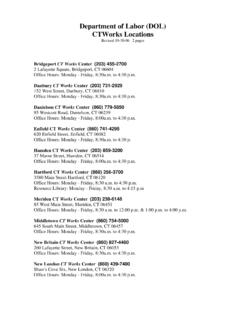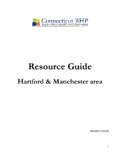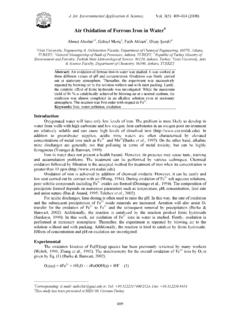Transcription of African Caribbean American Parents of Children with ...
1 Master List of Consumer and Family Groups FAVOR, INC. FAVOR is a non-profit Statewide Family Advocacy Organization serving families, Children and youth dealing with a broad spectrum of behavioral and mental health needs, by providing policy and family advocacy. FAVOR is committed to improving the quality of life for Children , youth and families in Connecticut by increasing accessibility to effective, culturally competent and high quality family-driven mental and behavioral health services and supports. Through member organizations, FAVOR encourages family participation in policy development and the legislative process.
2 FAVOR offers training, technical assistance and support to Parents and caregivers in local communities to assist them in becoming active and equal partners in the System of Care. FAVOR, Inc. 185 Silas Deane Highway, Wethersfield, CT 06109-1219 phone (860) 563-3232 website Family Partners African Caribbean American Parents of Children with Disabilities (AFCAMP) 60-B Weston Street Hartford, CT 06120-1551 Phone: (860) 297-4358 Connecticut Parent Advocacy Center 338 Main Street Niantic CT 06357 (860) 739-3089 V/TDD Toll Free 1-800-445-2722 Website: NAMI-CT: Connecticut s Voice on Mental Illness 241 Main St.
3 , 5th Floor Hartford, CT 06106 Phone: (860) 882-0236 Toll Free: (800) 215-3021 Website: NAMI-CT Padres Abriendo Puertas (PAP) An Organization of Hispanic Parents of Children with Disabilities 60-B Weston Street Hartford, CT 06120-1551 Phone: (860) 297-4391 Website: PAP AdviAdvisory Councils 1. State Advisory Council (SAC) The State Advisory Council (SAC), mandated by Connecticut Statute, Sec. 17a-4, is a fifteen-member committee appointed by the Governor. The primary duties of the Council are to: review policies; recommend programs, legislation or other matters that will improve services for Children , youth and families; review and advise the Commissioner on the proposed agency budget; perform public outreach to educate the community regarding policies, duties and programs of the Department and issue any reports it deems necessary to the Governor and the Commissioner.
4 2. Children 's Behavioral Health Advisory Council Originally a committee of the State Advisory Council on Children and Youth Services that addressed system of care issues, the Children s Behavioral Health Advisory Committee (CBHAC) was formally established by the state legislature through Public Act No. 00-188. Under this legislation, CBHAC began meeting in 2000, serving in an advisory capacity to the State Advisory Council. Under the requirements of 00-188 CBHAC is composed of state agency appointments (commissioners or their designees), state legislature appointments, two members appointed by the Governor, and 16 members appointed by the State Advisory Council on Children and Families; The majority of members must be Parents or relatives of a child who has or had a serious emotional disturbance or persons who had a serious emotional disturbance as a child and appointed members being limited to two two-year terms.
5 Members serve two-year terms; CHBAC is chaired by two persons from its members at least one of which is a parent of a child with serious emotional disturbance who serve two-year terms and may be re-nominated; CBHAC meets at least bimonthly; CBHAC is to submit an annual status report on local systems of care and practice standards; and CBHAC is to submit biannual recommendations concerning the provision of behavioral health services for all Children in the state to the State Advisory Council. CBHAC members approved the first by-laws on April 6, 2001.
6 Whereas the predecessor committee governed by consensus, CBHAC adopted Roberts Rules for Order and determined that motions must be passed by a 2/3 majority of those present. A majority of current members must be in attendance to hold official business. CBHAC has meet on a monthly basis since October 2000, except during summer months. For most of this time, meetings were two hours long (from 10-12 on the first Friday of each month). Committees meet outside of this time. The by-laws established six standing subcommittees (in approximate order of activity level): Long-Term Planning, Nominations and Membership, Multiculturalism, Coordinated Care, Legislative/ Regulatory, and Annual Plans and Reports.
7 CBHAC members participated in two federal Mental Health Block Grant site visit reviews, in September 2001 and in November 2005. CBHAC submitted biannual recommendations, as described in #7 above, in October 2003 and October 2005. The Long-Range Planning Committee sponsored statewide meetings of Community Collaborative members in November 2004 and in October 2005. Input from these meetings, along with recurrent themes from CBHAC meetings, served to identify three areas of particular concern: Expansion of Therapeutic Mentoring and Respite services; Recruitment, training and retention of family members in various system roles; and Creation of a statewide council, or network, of Community Collaboratives.
8 Beginning in fall 2005, ad hoc committees were formed to address these three areas. These committees meet monthly immediately following CBHAC meetings, which are abbreviated to one hour, whenever possible. Core Responsibilities of the State Advisory Council (SAC) and Children s Behavioral Health Advisory Committee (CBHAC) Duties of the State Advisory Committee on Children and Families: Sec. 17a-4 CT State Statutes (Chapter 319) Recommend to the commissioner programs, legislation or other matters which will improve services for Children and youth; Annually review and advise the commissioner regarding the proposed budget; Interpret to the community at large the policies, duties and programs of the department; and Issue any reports it deems necessary to the Governor and the Commissioner of Children and Families.
9 Duties of the Children s Behavioral Health Advisory Committee: Sec. 17a-4a CT State Statutes Submit a status report on local systems of care and practice standards for state-funded behavioral health programs to the State Advisory Council on Children and Families no later than October first of each year. Submit recommendations concerning the provision of behavioral health services for all Children in the state to the State Advisory Council on Children and Families no later than October first of each odd-numbered year. The recommendations shall address, but shall not be limited to, the following: o The target population for Children with behavioral health needs, and assessment and benefit options for Children with such needs; o The appropriateness and quality of care for Children with behavioral health needs; o The coordination of behavioral health services provided under the HUSKY plan with services provided by other publicly-funded programs.
10 O Performance standards for preventive services, family supports and emergency services training programs; o Assessments of community based and residential care programs; o Outcome measurements by reviewing provider practice; and o A medication protocol and standards for the monitoring of medication and after-care programs. 3. Youth Advisory Board The Youth Advisory Board (YAB) is comprised of youth in the care of DCF. The YAB address DCF policies and procedures that influence the youth in the care of DCF. In addition, youth are charged with establishing civic connections within their own communities as they transition from out of home care.
